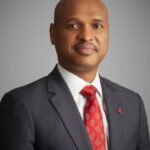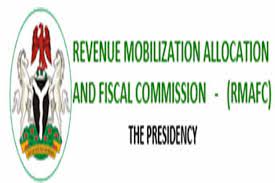How we prevent leakages of revenue to FG – RMAFC
By Kelechi Ogunleye/Kadiri Abdulrahman
The Revenue Mobilisation Allocation and Fiscal Commission (RMAFC) says it is taking steps to block leakages and boost the Federal Government’s revenue generation initiatives.
Mr Mohammed Shehu, the Chairman of the commission, said this in an interview with the News Agency of Nigeria (NAN) on Saturday in Abuja.
According to Shehu, one major function of the commission is to monitor the generation and disbursement of revenue from the Federation account.
“That act of monitoring involves where to get the money from, to check and see whether revenue generating agencies, which are specifically mentioned in the Act, are living up to expectations.
“The law mandates the commission to have the power to request for information from any revenue generating agency.
“That means we have the rights to go through the books of all government agencies to see the revenue they collected and what they remitted, ” he said.
The chairman said that the RMAFC had created committees to oversee revenue generating agencies.
“We have committees for customs, Federal Inland Revenue Service (FIRS), crude oil, gas, special duties, solid minerals. This committees are mandated to carry out monitoring activities across Nigeria.
“For instance, the customs committee usually goes to the custom services and other companies around the south-west, especially, where you have heavy dose of manufacturing to look into their books.
“They do this in collaboration with the Nigeria Customs Service ” the RMAFC boss said.
He said that, however, some Ministries, Departments and Agencies (MDAs) are so complicated that sometimes the RMAFC had to hire forensic experts or teams of consultants to look deeper into their books.
“Sometimes, they end up discovering huge sums of unremitted money.
“Within the last two years, we discovered over N319 billion that has been established and it has been remitted to the appropriate account of the federation.
“Sometimes, we collaborate with law enforcement agency like the Economic and Financial Crimes Commission (EFCC).
“If there is an MDA or organisation that has established liability and has owned up to the liability and they decide not to pay, sometimes we request the services of EFCC and they have been helping,” Shehu said. (NAN)(www.nannews.ng)
==============
Edited by Christiana Fadare
Published By
Has also recently published
 Economy/BusinessJune 30, 2025TAJBank pays 3rd dividend in 5 years, as total assets grow by 84%
Economy/BusinessJune 30, 2025TAJBank pays 3rd dividend in 5 years, as total assets grow by 84% Economy/BusinessMarch 17, 2025TAJBank to issue N20bn Sukuk, targets N100bn issuance
Economy/BusinessMarch 17, 2025TAJBank to issue N20bn Sukuk, targets N100bn issuance Economy/BusinessMarch 3, 2025TAJBank, AIFC partner to boost non-interest banking
Economy/BusinessMarch 3, 2025TAJBank, AIFC partner to boost non-interest banking Economy/BusinessFebruary 24, 2025TAJBank gets new global rating, wins Islamic bank award
Economy/BusinessFebruary 24, 2025TAJBank gets new global rating, wins Islamic bank award





